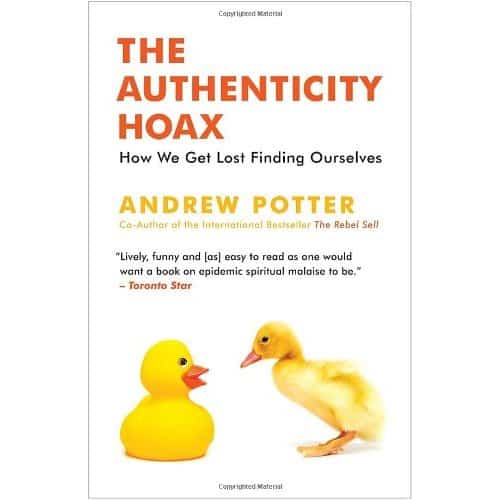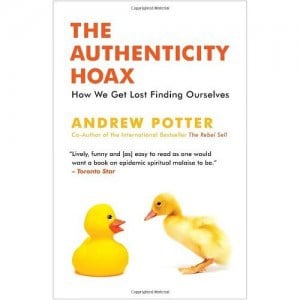Over at Mockingbird (a site with which TJP sort of “rhymes”), David Zahl picks up on a podcast interview with Andrew Potter, author of The Authenticity Hoax: How We Get Lost Finding Ourselves. More than just an anti-self-help book, Potter’s insight is that “authenticity” is essentially a form of religious longing that has been translated for a world already claimed and explained by modernity.
This is not a hoax — I really am recommending an essay about a podcast containing an interview with the author of a book. I swear. Here’s Zahl:
Of course, this doesn’t mean that authenticity itself is somehow a bad thing–quite the opposite! Just that, like happiness, it cannot be approached directly. Or, to bring it closer to home, while I’m truly gratified when people tell me how “authentic” the talks at our recent conference were (and they definitely were!), I also know that the second we start trying to be “authentic”, we may as well hang it up. […]
It goes without saying that Potter isn’t exactly a believer, but man-oh-man, he might as well be: […] “We are looking to replace the God concept with something more acceptable in a world that is not just disenchanted, but also socially flattened, cosmopolitan, individualistic, and egalitarian.”
And — in a moment tailor-made for a philosophy geek like me — there’s a video interview of Potter by an actual person (!) named Søren Askegaard. Awesome.
Nerdiness aside, the essay got me wondering: if Potter’s right that “authenticity” is really a re-encoded kind of religious longing, how does that intersect with actual religious longing? How do we go about saying what we know to be true: that the real longing is for the one who is more authentically Himself than we can even imagine?



